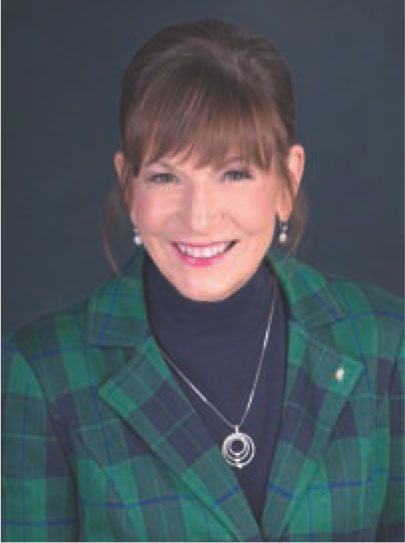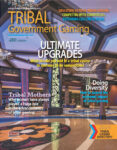
When the logo of the San Manuel Band of Mission Indians and their casino began showing up in Las Vegas at various events, including the boards on the ice at the T-Mobile Center, home of the NHL’s Vegas Golden Knights, people were confused. Why would a tribal casino in California be advertising in Las Vegas?
Well, that became clear a few months later when Station Casinos announced it had sold its Palms Casino Hotel to the Southern California tribe. The Palms, which had never reopened following the pandemic, had just been renovated by Station to the tune of $500 million. San Manuel spent $650 million to buy the 700-room, nearly 20-year-old casino and immediately hired Cynthia Kiser Murphey as general manager. She had spent nearly 20 years with MGM Resorts, first leading its human resources department and then operating the New York-New York property for a dozen years. The partnership clicked immediately.
Opening Hurdles

Cynthia Kiser Murphey, General Manager, The Palms
While other new resorts in Las Vegas struggled because of a limited database, the Palms was fortunate to be able to tap into the list of the tribe’s California casino, Yaamava’.
“The Yaamava’ database is extremely, extremely loyal,” says Murphey, “and it’s been growing for 35 years. That’s the key difference. When we bring in new customers and engage them in our Club Serrano, that makes a big difference. Just because we open our doors doesn’t mean the customers immediately come. There’s a lot of messaging about Las Vegas out there, so we have to find our pathway to reach not only new customers to come in and sign up, but to activate that Yaamava’ database. We’ve done that.”
One of the big attractions of the Palms is its eclectic group of food-and-beverage options, but none more so than the buffet. In a day and age when buffets are becoming the exception and not the rule in Las Vegas, the Palms doubled down on its offering, at the same time making sure it’s not a loss-leader.
“We don’t look at it that way,” says Murphey. “We work hard to make sure our food costs are in line. We provide the right kind of operating hours, and we look at it more as an amenity for the gaming customer. Certain theme days help us to engage the customer. We have very large groups. One of the surprises we’ve found is weddings. Instead of throwing a small wedding reception, they bring everybody to the buffet, and the food is outstanding. We do serve a lot of lobsters, and you even can dine if you’re a vegetarian. We’ve got an excellent vegetarian bar.”
Blending Values
Murphey says the support from the tribe has been outstanding—particularly for the employees.
“We are very, very blessed to have the shared values program,” she explains. “The most important aspect with the Palms being successful under the tribe’s ownership is to really leverage that culture. So not only do you get the synergies and the economies of scale, the purchasing power, but you also have amazing people—people who are deeply talented, who help with all aspects of the Palms. So we have shared services agreements with all of the entities at San Manuel.”
One of the things the Palms had in common with San Manuel and Yaamava’ even prior to the purchase is a loyalty to the ownership. Murphey says over 50 percent of Palms employees returned to the property when it was purchased by the tribe, even though it had been shuttered for two years.
“I think it’s one culture now,” she says. “With our tribe, our owners, people are always first. They are very focused on people, whether it be the team members, the community, the stakeholders or the customers. And that’s refreshing for a lot of people, to work for a company that is all about the people, the humanity, the ‘giving back’ philosophy.
“It sounds easy, but it takes some work to really build a culture where you engage your management team and your frontline team members and everybody to serve. It’s a commitment to serving others. So I think it’s one culture, and I think we’re building and growing and letting the community know who we are.”














